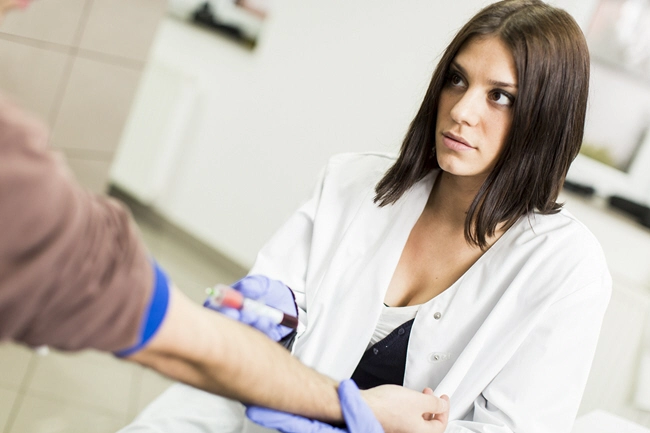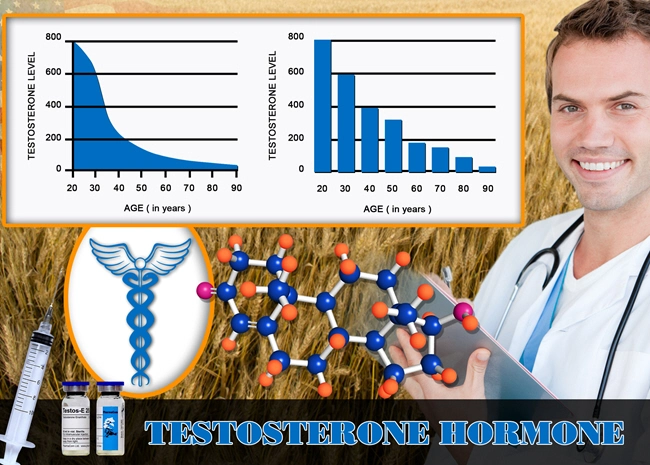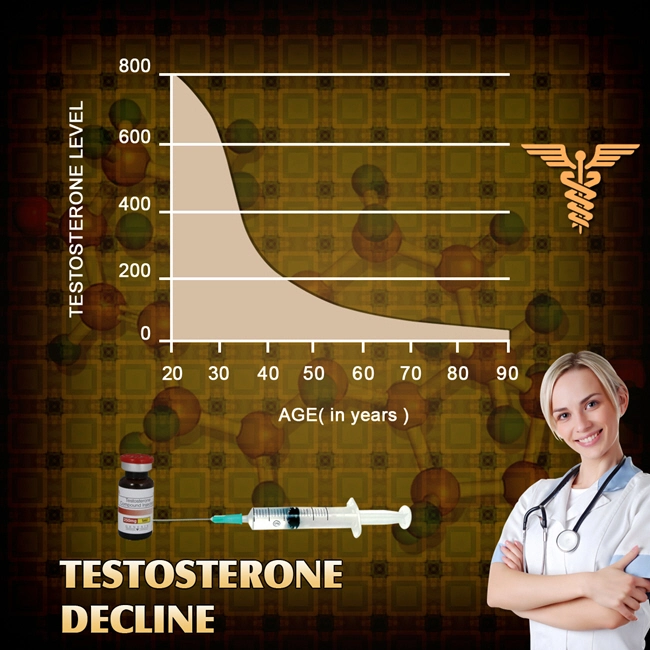
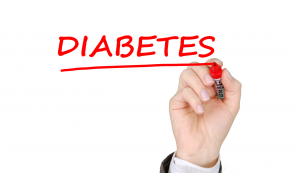 Diabetes is one of the most common chronic illnesses in the United States, affecting the lives of tens of millions of Americans.
Diabetes is one of the most common chronic illnesses in the United States, affecting the lives of tens of millions of Americans.
There is a clear link between Testosterone Deficiency and Diabetes, and researchers from the University at Buffalo hypothesize that Testosterone Injections may be an effective addition to Diabetes Treatment.
Not that long ago, Type-2 Diabetes was considered a permanent condition. On the other hand, a growing selection of research shows that Type-2 Diabetes can be greatly mitigated and even reversed with the correct treatment combined with appropriate lifestyle changes.
Video Link: https://vimeo.com/478767632
Video Download: Click Here To Download Video
Video Stream: Click Here To Stream Video
Dr. Paresh Dandona Presents New Data Regarding Testosterone as a Type-2 Diabetes Treatment
Dr. Paresh Dandona is the co-author of the research, printed in the scientific periodical Diabetes, Obesity, and Metabolism. The title is "Remission of type 2 diabetes following long-term treatment with injectable testosterone undecanoate in patients with hypogonadism and type 2 diabetes: 11-year data from a real-world registry study."
This study collected data from eleven years of treatment at a facility in Bremerhaven, Germany. Bio-Identical Testosterone Therapy cured Type-2 Diabetes in 1/3rd of treated patients. Based on this data, Dr. Dandona is confident that Testosterone can help men overcome Diabetes, increase insulin sensitivity, and burn body fat. The research is making waves around the world, as Dr. Dandona was highly lauded in India for his research at the 2020 Mohan Diabetes Foundation Symposium.
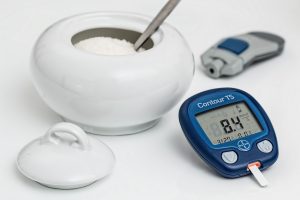 What is Type-2 Diabetes?
What is Type-2 Diabetes?
Type-2 Diabetes is a disorder of the pancreatic system which prevents the body from adequately controlling blood sugar. It's also known as Adult-Onset Diabetes or Diabetes Mellitus Type 2.
Blood Glucose Levels elevate because the body can't produce enough Insulin to lower Blood Sugar, largely due to rising insulin resistance. Testosterone Deficiency is common among Type-2 Diabetics, affecting around 1/3rd of men with the condition. It's estimated that more than 3,000,000 are diagnosed with Type-2 Diabetes every year.
The Link Between Type-2 Diabetes and Low-T
Dandona's research team first linked Type-2 Diabetes to Testosterone Deficiency in 2004. They also discovered that 25% of obese males without Diabetes also have Hypogonadism. It's estimated that Obesity and Type-2 Diabetes are the two leading causes of Testosterone Deficiency in men.
Research published in 2016 by Dandona and others showed that Low-T Treatment with Bio-Identical Testosterone could reverse Insulin Resistance in a large cohort of patients. As Low-T has been shown to increase Insulin Resistance, it makes sense that Testosterone Therapy would restore Insulin Sensitivity.
In the most recently published study, the goal was to establish the effects of Testosterone Therapy on patients with comorbid Type-2 Diabetes and Low-T. Researchers sought to analyze the extent to which Testosterone Injection could reduce Insulin Resistance and help control blood sugar. They hypothesized that some patients could be cured of Type-2 Diabetes with effective treatment.
 Testosterone Therapy for Type-2 Diabetics - Collecting Data
Testosterone Therapy for Type-2 Diabetics - Collecting Data
This study followed the treatment of 356 male patients. The same Urology Clinic treated all patients for eleven consecutive years. All patients were provided with the standard treatment for Diabetes, but 178 patients also received Testosterone Injections.
Of these 178, the average age of the men was 62, and patients received a 1 gram injection of Testosterone Undecanoate once every three months (after a six-week booster). The other 178 patients opted not to receive Testosterone Injections and had an average age of 64.
Patients were thoroughly analyzed regarding various factors associated with health and wellness, including Total Testosterone, Lipid Profile, Heart Rate, Insulin, HbA1c, Resting Glucose, Blood Pressure, waist circumference, weight, and height. Sexual Function and Quality of life were also recorded. Quality of Life was assessed via the Aging Males' Symptoms questionnaire. This data was collected a minimum of two times per year.
Testosterone for Type-2 Diabetes Results
The benefits were abundantly clear for patients receiving Testosterone Injections. Over the course of treatment, patients lost weight, had healthier resting blood sugar, lower resting insulin levels, and had lower HbA1c. On the other hand, patients that opted out of Testosterone had higher fasting insulin, HbA1c, and fasting glucose.
Among the experimental group, over 1/3rd experienced full relief from Diabetes. Furthermore, 46.6% of these patients could control blood sugar with a combo of Testosterone Therapy and Diabetes Treatment.
Among these 178 patients, 83.1% met their HbA1c target. On the other hand, Control Patients experienced no cases of remission and had no reduction in HbA1c or blood sugar.
 Patients taking Testosterone for Diabetes also had lower mortality risk and fewer diabetic complications, strokes, or heart attacks. This research makes it clear that the appropriate research should be conducted to ensure that patients with Type-2 Diabetes have access to the best possible treatments to live and thrive.
Patients taking Testosterone for Diabetes also had lower mortality risk and fewer diabetic complications, strokes, or heart attacks. This research makes it clear that the appropriate research should be conducted to ensure that patients with Type-2 Diabetes have access to the best possible treatments to live and thrive.
The study's authors note that 1/3rd of men suffer from Low-T and Type-2 Diabetes simultaneously. While Diabetes can cause Low-T, Testosterone Deficiency exacerbates the symptoms and increases the severity of Diabetes.
The discovery that Testosterone Replacement Therapy can effectively treat Type-2 Diabetes is groundbreaking. Further research is being conducted now and planned in the future to ensure the safety and effectiveness of this treatment.
Reference
https://medicalxpress.com/news/2019-03-testosterone-therapy-hypogonadism-t2dm.html
Contact Us Today For A Free Consultation
Dear Patient,
Once you have completing the above contact form, for security purposes and confirmation, please confirm your information by calling us.
Please call now: 1-800-380-5339.
Welcoming You To Our Clinic, Professor Tom Henderson.

- LabCorp Announces a Change to the Testosterone Reference Range [Last Updated On: April 16th, 2025] [Originally Added On: June 23rd, 2019]
- Important Facts About Testosterone Therapy Before Buying [Last Updated On: April 18th, 2025] [Originally Added On: July 13th, 2019]
- Soy: Does it Lower Testosterone? [Last Updated On: October 18th, 2024] [Originally Added On: August 30th, 2020]
- Testosterone Replacement Therapy (TRT) May Prevent Heart Attacks and Diabetes [Last Updated On: April 21st, 2025] [Originally Added On: November 17th, 2020]
- Did You Know? Recent Studies Have Confirmed the Link Between Low Testosterone (“Low-T”) and Depression. [Last Updated On: April 17th, 2025] [Originally Added On: January 10th, 2021]
- New Study Finds Testosterone Does Not Increase Your Heart Attack Risk [Last Updated On: April 14th, 2025] [Originally Added On: January 11th, 2021]
- The Great Testosterone Debate [Last Updated On: April 20th, 2025] [Originally Added On: January 14th, 2021]
- Testosterone Replacement Therapy Lowers Heart Attack Risk [Last Updated On: April 19th, 2025] [Originally Added On: January 18th, 2021]
- New Study Says: The Benefits of Testosterone Replacement Therapy Outweigh The Risks [Last Updated On: April 22nd, 2025] [Originally Added On: January 19th, 2021]
- Male Menopause. Fact or Fiction ? [Last Updated On: April 23rd, 2025] [Originally Added On: January 20th, 2021]
- Testosterone: How Much Do You Really Know About This Masculine Hormone? [Last Updated On: October 6th, 2024] [Originally Added On: February 9th, 2021]
- Low-T: What are healthy levels of Testosterone and why is it difficult to measure? [Last Updated On: September 11th, 2025] [Originally Added On: April 3rd, 2021]
- Testosterone Therapy May Be Good for the Heart if You Have Low-T [Last Updated On: May 3rd, 2025] [Originally Added On: July 21st, 2021]
- A Recent Study Concludes: Testosterone DOES NOT Cause Prostate Cancer [Last Updated On: September 14th, 2025] [Originally Added On: August 16th, 2021]
- In the Battle Against Aging, When do the Risks Outweigh the Rewards? [Last Updated On: April 4th, 2025] [Originally Added On: August 18th, 2021]
- New Study Concludes: Boosting Testosterone Levels Lowers Men's Death Risk [Last Updated On: May 11th, 2025] [Originally Added On: August 20th, 2021]
- Testosterone Replacement Therapy Slows Prostate Cancer! [Last Updated On: April 2nd, 2025] [Originally Added On: September 13th, 2021]
- Research proves that Testosterone Therapy Boosts Fertility! [Last Updated On: April 5th, 2025] [Originally Added On: September 26th, 2021]
- Free Testosterone and Sex Hormone-Binding Globulin [Last Updated On: April 6th, 2025] [Originally Added On: October 15th, 2021]
- Testosterone Does Not Cause Heart Attacks [Last Updated On: April 7th, 2025] [Originally Added On: October 15th, 2021]
- Testosterone and Women [Last Updated On: April 8th, 2025] [Originally Added On: October 15th, 2021]
- Testosterone and Metabolic Syndrome [Last Updated On: April 3rd, 2025] [Originally Added On: October 15th, 2021]
- Testosterone and Disease Prevention [Last Updated On: March 31st, 2025] [Originally Added On: October 15th, 2021]
- Judge Vacates $140 Million Verdict in Testosterone Lawsuit [Last Updated On: April 1st, 2025] [Originally Added On: October 15th, 2021]
- Testosterone and Estrogen [Last Updated On: April 9th, 2025] [Originally Added On: October 16th, 2021]
- Testosterone and Aging [Last Updated On: April 10th, 2025] [Originally Added On: October 16th, 2021]
- Testosterone Replacement Therapy (TRT) Benefits [Last Updated On: April 11th, 2025] [Originally Added On: October 16th, 2021]
- Testosterone and Male Menopause [Last Updated On: March 30th, 2025] [Originally Added On: October 16th, 2021]
- Testosterone Battles Obesity [Last Updated On: March 29th, 2025] [Originally Added On: October 16th, 2021]
- Why You Need Testosterone Replacement Therapy [Last Updated On: May 14th, 2025] [Originally Added On: October 16th, 2021]
- Testosterone FAQ's [Last Updated On: May 13th, 2025] [Originally Added On: October 25th, 2021]
- How Testosterone Impacts Sexual Preferences In Men and Women [Last Updated On: March 28th, 2025] [Originally Added On: October 30th, 2021]
- Growth Hormone and The Thyroid Gland [Last Updated On: April 24th, 2025] [Originally Added On: November 19th, 2021]
- How Does Masturbation Affect Testosterone Levels? Exploring the Science [Last Updated On: May 24th, 2025] [Originally Added On: March 27th, 2022]
- Testosterone Therapy Increasingly Used to Help Men Take Control of Aging [Last Updated On: May 25th, 2025] [Originally Added On: May 30th, 2022]
- The many benefits of Testosterone Replacement Therapy (TRT) [Last Updated On: November 1st, 2025] [Originally Added On: June 13th, 2022]
- Tlando Testosterone - A Brand New Way to Treat Low-T Safely with a Testosterone Pill [Last Updated On: May 28th, 2025] [Originally Added On: July 12th, 2022]
- Safe Tlando Testosterone Changes Landscape of Low-T Therapy [Last Updated On: May 30th, 2025] [Originally Added On: August 15th, 2022]
- Systems to Monitor Testosterone Replacement Therapy (TRT) [Last Updated On: October 12th, 2025] [Originally Added On: September 21st, 2022]
- Testosterone May Help You Keep Your Job (Or Find Another) [Last Updated On: June 12th, 2025] [Originally Added On: October 4th, 2022]
- Toxic Chemicals are Killing your testosterone…And your Manhood! [Last Updated On: October 28th, 2024] [Originally Added On: October 10th, 2022]
- A new study reveals that Testosterone improves body composition in men with low testosterone! [Last Updated On: October 22nd, 2025] [Originally Added On: October 17th, 2022]
- A former Mr. Olympia speaks about testosterone [Last Updated On: October 10th, 2025] [Originally Added On: November 8th, 2022]
- Testosterone Blockers Thwart Melanoma [Last Updated On: June 9th, 2025] [Originally Added On: December 11th, 2022]
